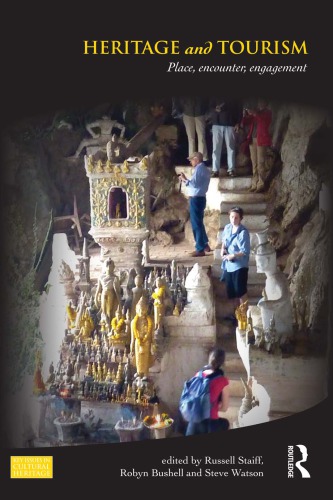

Most ebook files are in PDF format, so you can easily read them using various software such as Foxit Reader or directly on the Google Chrome browser.
Some ebook files are released by publishers in other formats such as .awz, .mobi, .epub, .fb2, etc. You may need to install specific software to read these formats on mobile/PC, such as Calibre.
Please read the tutorial at this link. https://ebooknice.com/page/post?id=faq
We offer FREE conversion to the popular formats you request; however, this may take some time. Therefore, right after payment, please email us, and we will try to provide the service as quickly as possible.
For some exceptional file formats or broken links (if any), please refrain from opening any disputes. Instead, email us first, and we will try to assist within a maximum of 6 hours.
EbookNice Team

Status:
Available4.8
32 reviewsThe complex relationship between heritage places and people, in the broadest sense, can be considered dialogic, a communicative act that has implications for both sides of the ‘conversation’. This is the starting point for Heritage and Tourism. However, the ‘dialogue’ between visitors and heritage sites is complex. ‘Visitors’ have, for many decades, become synonymous with ‘tourists’ and the tourism industry and so the dialogic relationship between heritage place and tourists has produced a powerful critique of this often contested relationship.
Further, at the heart of the dialogic relationship between heritage places and people is the individual experience of heritage where generalities give way to particularities of geography, place and culture, where anxieties about the past and the future mark heritage places as sites of contestation, sites of silences, sites rendered political and ideological, sites powerfully intertwined with representation, sites of the imaginary and the imagined.
Under the aegis of the term ‘dialogues’ the heritage/tourism interaction is reconsidered in ways that encourage reflection about the various communicative acts between heritage places and their visitors and the ways these are currently theorized, so as to either step beyond – where possible – the ontological distinctions between heritage places and tourists or to re-imagine the dialogue or both. Heritage and Tourism is thus an important contribution to understanding the complex relationship between heritage and tourism.